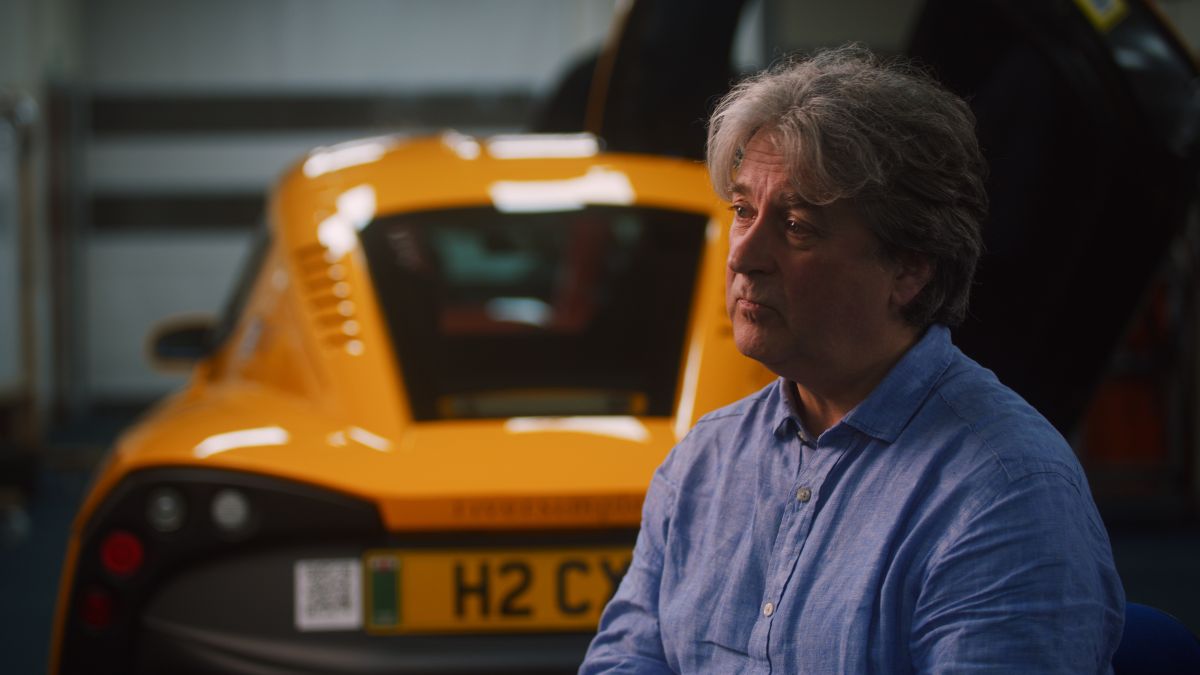In the first in a series of hydrogen-related short films, we sat down with Riversimple founder Hugo Spowers to discuss the future of the alternative fuel.
Having dedicated 20 years to building the sustainable car company and 15 years prior to working as a motorsport engineer, the managing director had a lot to say about the role that hydrogen fuel must play for the world to reach its sustainability goals, as well as the vision behind Riversimple.
“We do much more with much less,” says hydrogen motoring expert
Hugo began by explaining why he founded the company and his thought process behind designing the two-seat Rasa, which has become its most famous vehicle.
“I’d been interested in the environment long before I got into motor racing,” he explained.
“But after 15 years in motorsport, I reached the conclusion that we needed to get rid of combustion engines altogether.
“After I got out of motor racing, I found out about hydrogen fuel cells. And I realised that the technology existed, but it’s such a huge step from petrol engines – much bigger than putting batteries into cars – that you needed to design a different sort of car around the characteristics of hydrogen technology.”
His solution, the Rasa, is the culmination of decades of research and development to create a new type of vehicle that suits the alternative fuel source. The entrepreneur and engineer hailed it as the “most sophisticated fuel cell power train in the world” and, while “it’s not the most mature, it’s much more sophisticated in that we do much more with much less.”
Whilst Riversimple has focused on creating hydrogen-fuelled cars, Hugo explained that he’s not against their electric counterparts.
“We don’t argue about solar PVs or wind turbines – which one’s going to win the renewable energy race; they’re different and you need them both. And the same’s true of batteries and hydrogen,” he said during the in-depth interview.
“I have huge respect for battery cars and they’re a very important part of the mix.”
But the founder explained that we can’t depend on electric cars alone. Pivoting to renewable energy across industries requires a range of minerals, such as lithium, cobalt and nickel, which are in short supply but ever-increasing demand.
Electric car manufacturing depends on these materials, and the minerals are also required for wind turbines, solar PV, mobile phones, as well as many other modern technologies.
“We simply cannot afford to allocate 900kg of critical materials into an [electric] family car,” he added.
“We’ve got 1.5 billion cars on the planet. At the moment only 2.7% of those cars are electric, and that includes plug-in hybrids. So we’ve got to replace 97% of the world’s cars with zero-emission cars somehow. And if we think we’re going to do that with batteries, we won’t have a planet left.
“We need hydrogen vehicles because you can address the longer-range applications that require a high intensity of critical materials without any of those critical materials.”
Watch the full video to find out Hugo Spower’s thoughts on the issues with hydrogen, the industries where it’s doing well, and much more.
Hydrogen car insurance with Adrian Flux
We’re one of very few insurance companies in the UK that offer hydrogen car insurance as well as cover for electric and hybrid vehicles.
With a team made up of many car enthusiasts, it’s no surprise that we want to show our support for hydrogen, which maintains the sound and feel of a traditional internal combustion engine vehicle while also helping the country reach net zero.
If you’re thinking about getting a hydrogen vehicle, call us on 0800 369 8590 for a quote, or book a callback at a time that suits you.
Publisher: Source link











